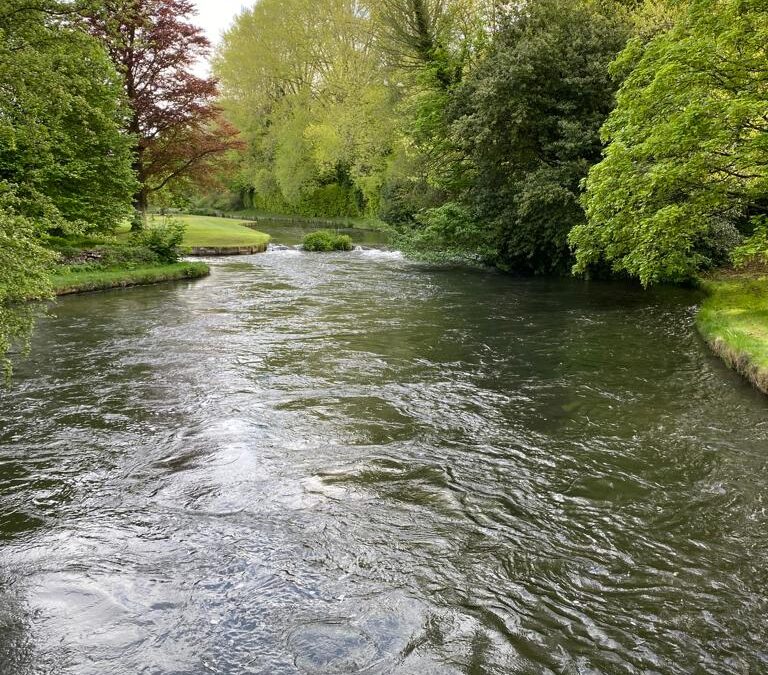It’s been a while again since my last nudge, and I hope you’re keeping well. I don’t know about you, but, in these current times, I have found myself craving quieter moments, and am ever conscious and grateful for the freedoms available to me, which sadly, so many others in our world do not experience.
This nudge has been percolating for a while now as I notice more and more how hard it seems for people to listen to one another.
Habitual vs quieter listening
We all have habitual ways of listening, me too, and it was a revelation for me to learn I was not as good a listener as I thought! The following are some of those habitual ways:
listening to evaluate
I used to think it was an important part of my work to listen to evaluate…to analyse what a person said and then advise on strategies or techniques, or ‘how tos’ that would help the person to take action on whatever they wanted to change or was keeping them stuck.
Similarly, in my personal life often listening resulted in my own internal conversation going on at the same time: whether I agreed/disagreed with them, making assumptions and judgements on what they were saying, having critical thoughts or sharing ‘I know just how you feel’ similar stories!
listening for information
Intently listening for information, to take notes, to research and memorise what is being said. Absolutely fine as part of a learning process, but less useful when wanting to connect with people at a deeper level.
listening when distracted
Boy do I see this everywhere! What I call half listening when people are seemingly listening to you, but busy doing something else at the same time! Or they are preoccupied with what’s going on in their own heads…easily spotted as they tend to interrupt more, try to finish your sentences, or are in a hurry for you to finish or change the subject.
listening to diagnose
As a coach, I do not diagnose, but in the field of mental health listening to diagnose is common place. For me, I’ve come to see there’s a huge difference between listening to diagnose, based on a premise that people need fixing in some way, and listening for mental health…seeing that all people have an innate wellbeing and wisdom inside them, and pointing them in that direction, which allows the space for their own fresh thinking and insights to occur.
listening through our own filters
This is a biggie! And so often sub consciously happening whether we know it or not. Similar to listening to evaluate, conditioned patterns of thinking and habitual beliefs and values can hinder us from seeing another person as they really are. Rather, we see them through our own ideas of who we ‘think’ they are, sometimes long held and unquestioned. It is fascinating to scrub all that and meet someone afresh…believe me, I’ve seen miraculous things happen as a result!
Listening with nothing on our minds
I’ve come to see there is a different way to listen. It involves getting quiet enough to drop out of our own, often busy, thinking, and listen with nothing on our minds…to listen with ‘both ears’ as I heard it put recently.
In my own experience, I cannot over estimate the benefits of this kind of listening. It leads to a greater understanding and appreciation of the other person’s world. We get to connect at a much deeper level…heart to heart as the phrase goes…and we all know how it feels to be heard and understood in this way.
And ultimately it can help lead to a shift in consciousness that goodness the world needs to see more of at the moment…..
Being present as the route to better listening
As I’m often sharing, we’re either living in our life, present to what shows up in any moment, or we’re living in our thoughts. The more present I am when listening to someone, the greater the feeling of connection and understanding. From that space, of feeling truly heard and understood, the other person naturally gets their own new perspectives and fresh insights, which is an incredibly helpful and hopeful way to live.
Listening to yourself
A wonderful by product of noticing how you tend to listen, and choosing to listen differently, is that you can also start listening to yourself the way you’d like others to listen to you.
So, what do you think your habitual way of listening is, what rings true for you, and how might you choose now to listen differently? As always, I’d love to hear what you notice!
And, as one of my older mentors says, ‘everyone could do with a damn good listening to‘, and if that appeals to you, then do get in touch.
Until the next time, all the very best for now.
Tamsin
PS If other people spring to mind as you read through these different ways of listening, then do feel free to pass this nudge along to them! 😉

